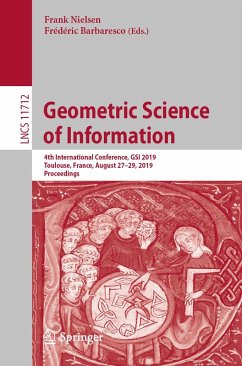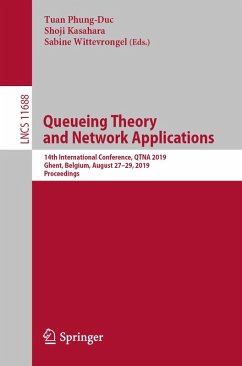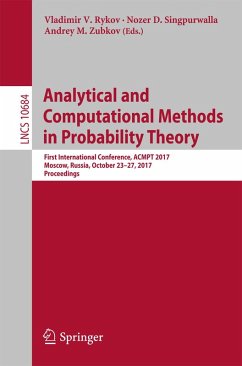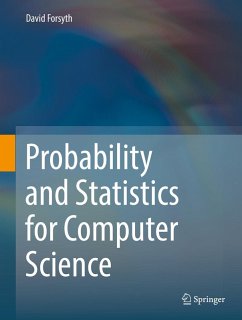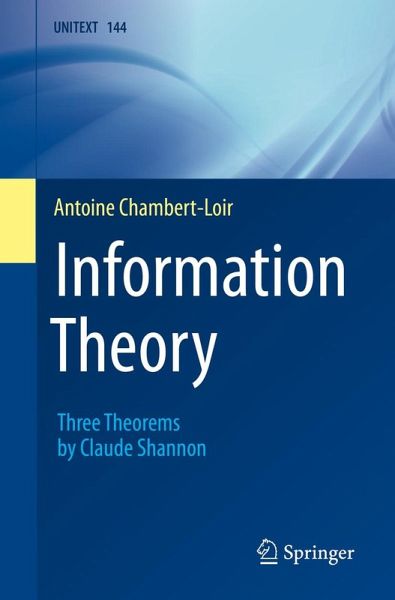
Information Theory (eBook, PDF)
Three Theorems by Claude Shannon
Versandkostenfrei!
Sofort per Download lieferbar
52,95 €
inkl. MwSt.
Weitere Ausgaben:

PAYBACK Punkte
26 °P sammeln!
This book provides an introduction to information theory, focussing on Shannon's three foundational theorems of 1948-1949. Shannon's first two theorems, based on the notion of entropy in probability theory, specify the extent to which a message can be compressed for fast transmission and how to erase errors associated with poor transmission. The third theorem, using Fourier theory, ensures that a signal can be reconstructed from a sufficiently fine sampling of it. These three theorems constitute the roadmap of the book.The first chapter studies the entropy of a discrete random variable and rel...
This book provides an introduction to information theory, focussing on Shannon's three foundational theorems of 1948-1949. Shannon's first two theorems, based on the notion of entropy in probability theory, specify the extent to which a message can be compressed for fast transmission and how to erase errors associated with poor transmission. The third theorem, using Fourier theory, ensures that a signal can be reconstructed from a sufficiently fine sampling of it. These three theorems constitute the roadmap of the book.
The first chapter studies the entropy of a discrete random variable and related notions. The second chapter, on compression and error correcting, introduces the concept of coding, proves the existence of optimal codes and good codes (Shannon's first theorem), and shows how information can be transmitted in the presence of noise (Shannon's second theorem). The third chapter proves the sampling theorem (Shannon's third theorem) and looks at its connections with other results, such as the Poisson summation formula. Finally, there is a discussion of the uncertainty principle in information theory.
Featuring a good supply of exercises (with solutions), and an introductory chapter covering the prerequisites, this text stems out lectures given to mathematics/computer science students at the beginning graduate level.
The first chapter studies the entropy of a discrete random variable and related notions. The second chapter, on compression and error correcting, introduces the concept of coding, proves the existence of optimal codes and good codes (Shannon's first theorem), and shows how information can be transmitted in the presence of noise (Shannon's second theorem). The third chapter proves the sampling theorem (Shannon's third theorem) and looks at its connections with other results, such as the Poisson summation formula. Finally, there is a discussion of the uncertainty principle in information theory.
Featuring a good supply of exercises (with solutions), and an introductory chapter covering the prerequisites, this text stems out lectures given to mathematics/computer science students at the beginning graduate level.
Dieser Download kann aus rechtlichen Gründen nur mit Rechnungsadresse in A, B, BG, CY, CZ, D, DK, EW, E, FIN, F, GR, HR, H, IRL, I, LT, L, LR, M, NL, PL, P, R, S, SLO, SK ausgeliefert werden.



